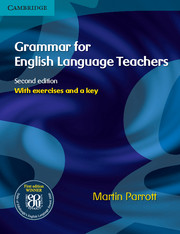17 - used to and would
Published online by Cambridge University Press: 09 February 2023
Summary
Key considerations
In this chapter we look at the use of used to and would as ways of referring to the past. We look at the use of would as a modal verb in Chapter 11 and its use in conditional sentences in Chapter 19.
Many learners avoid using used to and would to refer to the past even when they are confident about how to do this. We may need to prompt and encourage them to use these forms – for example, when they are writing about people or places, describing them now and in the past. Most learners find it relatively easy to understand the meaning of used to and to use it in affirmative sentences. They may have more difficulty in constructing questions and negative statements.
Form
used to
Although we refer to this form as used to it makes sense to analyse the grammar as used + infinitive.
would
There is no difference between the form of woul when it refers to the past and its form as a modal verb. Some people avoid using the negative and question forms of would to refer to the past.
Meaning
Common features
We use used to and woul as alternatives to the past simple in describing habits and repeated actions which took place over a period of time (and which often then ceased).
As children we used to spend our dinner money on pasties and cakes.
We would feel sick in the afternoons.
Used to and would emphasise both remoteness and duration. Once we have used one of these auxiliary verbs to establish this, or if the context makes this clear, we often then vary our choice and also use the past simple. There are no contexts in which we must use used to or would but it appears odd both to overuse and, conversely, to neglect these forms in any extended description.
Differences
Repeated actions and states
We use both forms to describe repeated actions but we use only used to to describe extended past states. In the following examples we could not use would:
We used to live in the town centre.
There used to be three cinemas in the High Street.
- Type
- Chapter
- Information
- Grammar for English Language Teachers , pp. 250 - 256Publisher: Cambridge University PressPrint publication year: 2010



